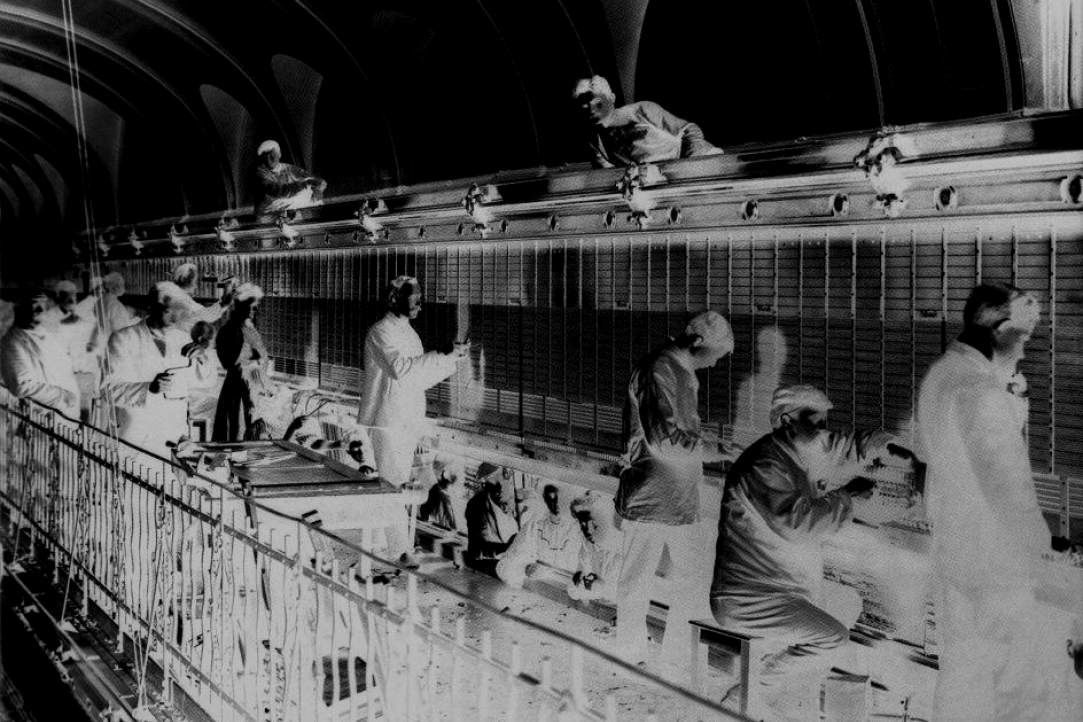
‘We Control the Flight of Small Spacecraft’: How HSE University Launches Satellites
Following the meeting with participants of the 3rd Young Scientists Congress, Russian President Vladimir Putin assigned the government to include the creation and launch of small spacecraft in a new national project. Universities will also be involved in the project. Dmitrii Abrameshin, Head of the Mission Control Centre at the Moscow Institute of Electronics and Mathematics at HSE University, spoke about the mechanism of small satellites and which satellites have already been launched by HSE University.

HSE Economists Develop a Model for Sustainable Solar Geoengineering Agreements
Researchers at HSE University and George Mason University have investigated the sustainability of prospective international agreements on solar geoengineering. The authors have proposed a scheme in which payments flow from affluent nations to less wealthy ones; an arrangement which sets their proposal apart from traditional systems. The proposed model aims to dissuade more vulnerable countries from excessive use of the prevalent geoengineering method by providing compensation for the potential damage they may incur and supporting their adaptation to climate change. The paper has been published in Environmental and Resource Economics.
.png)
How the Telephone Conquered the World. Episode Nine: Big Connections
The history of the invention of telephony reads like a captivating detective novel, but even more intriguing are the events that contributed to the worldwide adoption of this technology. In this series of columns on IQ.HSE, Anton Basov, HSE Faculty of Computer Science editor, discusses how telephones have become an integral part of our everyday life. The ninth episode of the series explores the development of the first long-distance, interstate, and transatlantic telephone lines, which suddenly made people thousands of kilometres away feel as close as if they were in the same room together.

New Season of Rediscovering Russia Student Expedition Project Begins
From January 15 to February 15, the project website is accepting applications to organise and conduct expeditions for the 2024 season as part of the Rediscovering Russia project. In 2023, 1,000 students from 157 universities took part in the expeditions.

‘It’s Important to Combine Painting with Modern Technology’
On January 19, the HSE ART GALLERY hosted the opening of a new exhibition, ‘Majors, Minors. Aftertone’, which will last until March 10. The exhibition features works created by students of the HSE Art and Design School as part of their courses on modern painting and creating art projects using photography and neural networks. The exhibition was curated by artists and teachers Olga Chernysheva, Vladislav Efimov, as well as art critic Nicolas Audureau.

Why Study Data Analytics?
In an era where data drives decisions, Data Analytics is becoming increasingly important. It allows organisations to make informed decisions by turning complex data into applicable insights. Recognising the importance of this field, Owen John Havercroft Reyes, a recent graduate of International Business at the University of Sheffield, enrolled as a first-year master’s student and became an international ambassador at HSE University-St Petersburg. In this article, Owen shares his experience of enhancing his technical expertise in the programme ‘Data Analytics for Business and Economics’.

‘Graduates of Our Programme Will Not Only Manage Innovative Development, but Also Create New Businesses’
HSE University’s Online Campus presents a new programme titled ‘Innovative Business Management’. The online master’s programme trains economics leaders of the future—creators and managers of businesses based on innovation and the latest scientific and technical achievements. The programme synthesises entrepreneurial and managerial competencies and is taught by leading experts, owners, and managers of innovative companies.

Human Bodies Impede 6G Signal Transmission
A team of researchers, including scientists from HSE University, have investigated the influence of human movement on the propagation of 6G signals. Within a range of up to 10 metres, the signal attenuation is comparatively minor, yet brief connection failures may still occur. Based on the study findings, a blockage detection algorithm has been developed to account for both signal attenuation and interruptions. The gaming industry is likely to derive the greatest benefits from this discovery. A paper with the study findings has been published in Computer Communications.

How the Telephone Conquered the World. Episode Eight: The Russian Field of Experiments
The history of the invention of telephony reads like a captivating detective novel, but even more intriguing are the events that contributed to the worldwide adoption of this technology. In this series of columns on IQ.HSE, Anton Basov, HSE Faculty of Computer Science editor, discusses how telephones have become an integral part of our everyday life. The eighth episode of the series recounts how Russia first adapted the telephone for military and logistical purposes, created a shell company headed by a nominal executive for reselling the rights to Western competitors, and intensively developed communication infrastructure in the country's two capitals, making such progress that Vladimir Lenin insisted on capturing and maintaining control of telephone exchanges at all costs.

‘Carols Gave Me a Good Mood for the Whole Year’
In mid-January, HSE University students kept Russian folk traditions alive by taking part in Christmas carolling. Singing cheerful folk songs and wearing bright outfits, the carollers walked along the university building on Pokrovsky Bulvar, creating a real festive atmosphere. The event was organised by the HSE Heritage Club.

